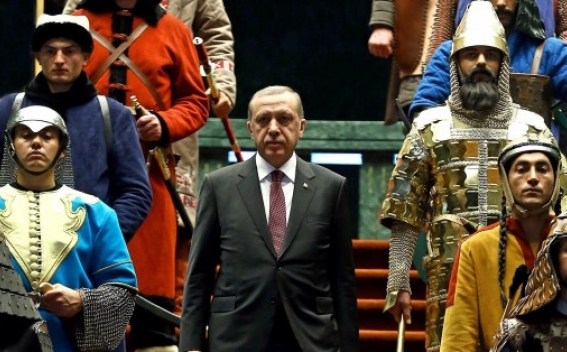Turkish President Recep Tayyip Erdogan has long held delusions of becoming a new age, Sultan. He has shut down all his opposition and has become a de facto dictator in his nation, where elections have now merely become a formality. However, his ambitions seem to be far greater, looking to exercise a kind of pan-Ottoman reach, attempting to become an assertive geopolitical actor.
With Turkey’s limited international power, Erdogan seems to have found a great alternative way. He is now looking to use Turkey’s NATO membership as a tool to amplify his ambitions.
From getting involved in conflicts in the Middle East to jumping into tensions in South Asia. From attempting to be a mediator is Russia and Ukraine to getting involved in the India-Pakistan clash. Erdogan seems to want to be some kind of a prime international leader. Unfortunately for him no country wants or cares for his delusions.
Disparity in NATO
Turkey’s prime importance in NATO is due to its geographic position, straddling Europe and the Middle East. But under Erdoğan, Ankara has adopted a disruptive posture within the alliance. Erdogan has blocked NATO expansions, challenged consensus, and tested the West’s patience — all while cultivating ties with adversaries like Russia. His veto of Sweden’s NATO membership until political concessions were extracted, and his purchase of Russia’s S-400 missile system despite U.S. objections, illustrate his strategy: weaponize Turkey’s NATO role to secure unilateral advantages.
He seems to be in nobody’s corner in reality. This nonalignment is also a well-considered geopolitical strategy across the globe; however, Erdogan is one of the few who plays both ways. On one hand, he wants all the benefits of NATO and on the other he wants to pursue his own independent ambitions.
Interference across the globe
Syria & Libya: Erdogan has deployed troops and mercenaries, using these theaters to assert regional dominance and counter Kurdish autonomy near Turkish borders. In Libya, Turkish intervention shifted the balance of power and secured Mediterranean leverage.
Nagorno-Karabakh: Turkey’s backing of Azerbaijan during the 2020 war against Armenia reinforced Ankara’s reach into the South Caucasus and challenged Russian influence in the region, damaging the Armenians on a massive scale.
Africa & Central Asia: Erdogan has expanded Turkey’s military, religious, and economic presence in Somalia, Sudan, and parts of Central Asia, projecting power far beyond its traditional sphere of influence.
In the India-Pakistan dynamic, Erdoğan has consistently aligned with Pakistan, particularly on the Kashmir issue. He has raised the matter at UN forums, drawing criticism from New Delhi. This overt alignment is driven by Erdogan’s bizarre efforts to position himself as a pan-Islamic leader, appealing to Muslim-majority countries by championing Islamic causes, even at the cost of straining ties with major powers like India.
Turkey’s stance on the Russia-Ukraine war illustrates Erdogan’s incredible opportunism. While selling drones to Ukraine and voicing support for its territorial integrity, Turkey has also refused to impose Western sanctions on Russia and deepened trade ties with Moscow. Erdoğan has cast himself as a mediator, hosting talks and brokering grain deals — all while avoiding full alignment with either side. This double game not only enhances Turkey’s diplomatic clout but also ensures it benefits regardless of the war’s outcome.
Delusions of Erdogan
Erdogan’s foreign policy is often infused with Ottoman nostalgia — from converting Hagia Sophia into a mosque to invoking the Ottoman past in speeches and diplomacy. This isn’t mere symbolism; it’s part of a broader vision where Turkey reclaims leadership in the Islamic world and reasserts its influence over former Ottoman territories. Erdogan sees himself as some kind of a new age Ottoman Sultan.
With his international moves, Erdogan is not just reshaping Turkish foreign policy — he is reshaping Turkey’s identity on the world stage. His use of NATO as a geopolitical tool, his assertive involvement in conflicts from South Asia to Eastern Europe, and his ideological ambition to restore Turkey’s former imperial stature reflect a radical departure from Atatürk’s vision of secular nationalism. He is now delving into dangerous overreach, one which can have the potential to backfire spectacularly.








